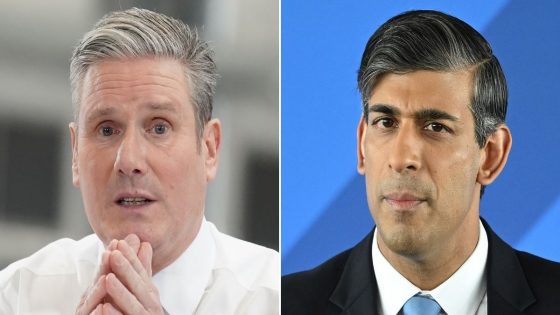The attempted assassination of Donald Trump has led, inevitably and justifiably, to calls for reflection on the state of Canada’s political culture. But such calls for reflection predate the latest outbreak of political violence in the United States.
“The level of threats and misogyny that I’m subject to, both online and in person, is such that I often fear going out in public,” Liberal MP Pam Damoff told a House of Commons committee in May. “That is not a sustainable or healthy way to live.”
Four weeks earlier, Damoff had announced she would not seek re-election, in part because “the tone and tenor of public discourse has deteriorated significantly.”
“The toxic drive for social media likes and clips among elected officials has hindered constructive conversations, exacerbated differences between us and diminished our capacity to show empathy toward each other,” Damoff told the committee.
Liberal MP Pam Damoff shares examples of abuse she says she and her staff have received from the public. Damoff says the harassment continued even after she announced she is not seeking re-election due to the misogyny and disrespectful dialogue in politics, and threats to her life.
Seated beside Damoff, Liberal MP Iqra Khalid offered her own stories of being harassed and threatened.
“If we are not able to stop the harassment of each other in the name of partisan politics, we are not going to survive as a democracy,” Khalid told the committee. “Our next generation is going to be completely disengaged, disenfranchised, and will have no trust in democratic institutions at all. I think this is very vital for us to recognize.”
The sergeant-at-arms of the House of Commons told the same committee his office opened 530 files on threats against MPs in 2023 — there were just eight such files in 2019.
A security report prepared by senior public servants last year warned that threats against politicians were being “increasingly normalized.” The commissioner of the RCMP suggested in May that the police force might need new tools to deal with the problem.
And the problem is not exclusive to federal politics. The mayor of Gatineau, Que. resigned abruptly in February, citing the current political climate — one among a wave of resignations across the province. Days later, Quebec’s provincial government launched a helpline for municipal politicians and it has since passed a law that includes new measures to combat harassment of elected officials.
The problem isn’t limited to the United States or Canada, either. The United Kingdom’s new government is promising to conduct a review of the “alarming rise in intimidation, harassment and abuse towards candidates, campaigners and volunteers from all parties” seen during the recently completed campaign.
It’s true that politicians, in this country and elsewhere, have long had to deal with personal threats. But it doesn’t necessarily follow that the current state of Canada’s political culture is acceptable, or not worth worrying about.

The situation also doesn’t need to rise to the level of deadly violence before it’s seen as a problem. Damoff’s example suggests that people may already be excluding themselves from the political process because of its toxic culture. That might be considered a crisis on its own.
But if the warning lights on Canada’s political culture are flashing red, the next question is what we should do about it.
The role and potential influence of social media is hard to ignore. There also may be a need for new laws to deal with offline behaviour — Marco Mendicino, the former public safety minister, has called for the establishment of “protective zones” around constituency offices.
Proposals for new regulations or laws will almost certainly — and understandably — raise concerns about freedom of speech, though it might still be possible to design effective policies that take such concerns into account.
But in the wake of Saturday’s shooting in the United States, attention has understandably focused first on the state of political discourse.
Back in May, NDP MP Charlie Angus blamed Conservative Leader Pierre Poilievre and his party for the rising toxicity in Canadian politics. Alberta Premier Danielle Smith said on Monday that “progressive” politicians needed to reflect on their rhetoric, while Poilievre himself has pointed at the “violent and horrific rhetoric of the radical left.” (As of this writing, there is no information about what might have motivated or inspired the 20-year-old man who shot at Donald Trump.)
Every elected official in Canada could take this moment to reflect on his or her own words and actions. Even if words never led to violence, we should worry about whether Canada’s political discourse has turned poisonous. Preventing violence is important, obviously. But so is simply holding the country together and maintaining a healthy democracy.
But aside from the inevitable finger-pointing, concerns about the tone of political debate also run up against the fact that in a democracy, some amount of conflict is unavoidable and, in many ways, necessary. Sometimes strenuous criticism, even condemnation, is warranted.
In her official response to the assassination attempt in Pennsylvania, Michigan Gov. Gretchen Whitmer — the target of a kidnapping plot in 2000 — asked her fellow Americans to call out “unproductive words designed to tear us apart.” That might be a good starting point for drawing lines between acceptable and damaging rhetoric.

Calls for political violence obviously qualify as damaging. So do words that dehumanize or unnecessarily demonize, that pit Canadians against each other. Most of all, the truth — the factual basis for a claim — matters.
It might seem divisive, for instance, to suggest that Trump is a serious threat to American democracy. But it’s also a concern grounded in observable facts — starting with Trump’s support for an attempted insurrection in January 2021.
During her testimony before the House committee in May, Iqra Khalid suggested that when the cameras are off, MPs are capable of having decent relationships across party lines. She recalled buying Conservative MP Michael Barrett a piece of cake for his birthday and Conservative MP Melissa Lantsman bringing her dinner one night.
It wouldn’t hurt for Canadians to see such displays — to see MPs treating each other as humans worthy of respect, and not just as sworn enemies sharing nothing more than mutual contempt.
But the first step to improving Canada’s political culture might be admitting that there’s a problem.
Source Agencies




